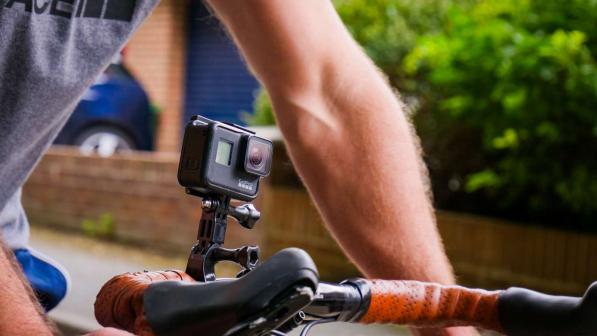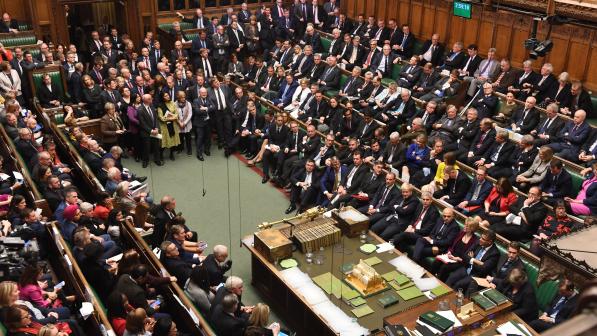New report highlights human cost of loophole in law on driving offences

- Loophole allows drivers who have accrued 12 penalty points on their licence to avoid a driving ban by claiming it would cause them “exceptional hardship”
- Report highlights case studies of drivers who used the loophole to escape bans despite a history of driving offences, and who went on to injure or kill road users
- More than 83,000 drivers in the past 10 years have escaped disqualification due to “mitigating circumstances”
- Cycling UK calls on people to take action by asking their MPs to back changes to the law
Cycling UK has today published a report that highlights how failings in the UK’s road justice system have allowed dangerous drivers to escape disqualification and cause death and injury on the roads.
The report focuses on two motorists whose penalty points from driving offences would normally have resulted in a “totting up” ban, but who were allowed to keep their licences after pleading "exceptional hardship". In each case, they were later imprisoned for causing death by dangerous driving, leaving the families of their victims facing real hardship and heartbreak.
- Christopher Gard accumulated eight convictions for using a mobile phone while driving but escaped a ban in June 2015 by arguing that it would cause him to lose his job, highlighting that this would impact negatively on his young son, and his son’s mother. He promised to keep his phone locked in his boot. Six weeks later, he had already broken his promise, and was once again texting behind the wheel when he ploughed into the back of cyclist Lee Martin, killing him. Gard tried to cover up his actions by deleting his texts. He was later jailed for nine years for causing death by dangerous driving.
- In 2004, Kurt Sammon ran over 13-year-old Michael Weaver, who died from serious injuries including a severed spinal cord. Sammon, who had taken methadone, failed to stop and abandoned his car two miles away. He was reported to have served just three months in prison after admitting failing to stop and report an accident, and having no insurance or MOT. In October 2018, following mobile phone offences, he escaped a ban by pleading exceptional hardship, saying it would affect his job and his ability to care for his mother. In January 2019, Sammon was fielding a call on his handsfree mobile when he jumped a red light in his van and hit 30-year-old motorcyclist Louis McGovern, who died from his injuries the following day. Sammon was convicted of causing death by dangerous driving and jailed for seven years.
The report also highlights several other cases of drivers, including celebrities such as actor Steve Coogan, former model Katie Price and singer Ian Brown, who all escaped a ban using the exceptional hardship argument. While numbers of exceptional hardship pleas are not recorded separately, official figures show that more than 83,000 people escaped an automatic driving ban due to “mitigating circumstances” between 2011 and 2020.
It’s families such as Louis McGovern’s and Lee Martin’s who really suffer exceptional hardship when the courts put the retention of someone’s licence to drive above road safety, allowing irresponsible people to carry on driving until they cause further harm or death on the roads
Duncan Dollimore, head of campaigns, Cycling UK
Duncan Dollimore, Cycling UK’s head of campaigns, said: “If you end up with 12 or more points on your licence the court has to disqualify you from driving, unless this would cause exceptional hardship. But as these cases show, that loophole is exploited every day, with inconvenience caused by a driving ban often being enough to pass the ‘exceptional’ test.
“It’s families such as Louis McGovern’s and Lee Martin’s who really suffer exceptional hardship when the courts put the retention of someone’s licence to drive above road safety, allowing irresponsible people to carry on driving until they cause further harm or death on the roads. The exceptional hardship law isn’t delivering justice and doesn’t reduce danger on our roads, and when road traffic laws don’t do that MPs should be asking ministers why they’re not being changed.”
Cycling UK has already successfully lobbied for changes to the Sentencing Councils’ guidance for magistrates when considering exceptional hardship pleas, but these must be backed up by law to be effective. The charity is calling on people to contact their MPs using an online action asking them to support amendments to the Police, Crime, Sentencing and Courts Bill which is currently before Parliament. These changes, proposed by Cycling UK in collaboration with Living Streets, British Cycling, RoadPeace and the Road Danger Reduction Forum, include closing the exceptional hardship loophole.
Help fix our failing road traffic laws and take action by emailing your MP.
Notes to editors
- Cycling UK, the UK’s cycling charity, imagines a world where the streets are free of congestion and the air is clean to breathe, where parents encourage their children to cycle to school and everyone shares the exhilaration of being in the saddle. For more than 140 years, we’ve been making our streets safer, opening up new traffic free routes and inspiring more people to cycle more often. www.cyclinguk.org
- The case study report, entitled “Exceptional” Hardship?, can be downloaded here.
- Cycling UK’s report Five Flaws: Failing Laws, highlighting wider failings in the UK’s road justice system, can be found at https://www.cyclinguk.org/fiveflaws.
Press contact information
For more information, please contact the national Cycling UK press office. Due to the restrictions caused by the coronavirus outbreak, currently the main press office number (01483 238 315) is not being monitored. If you would like to speak to a member of the press office during working hours (0900 - 1700) please call Rob Kingston on 07880 424 912 or email [email protected]. Out of hours, call 07786 320 713




